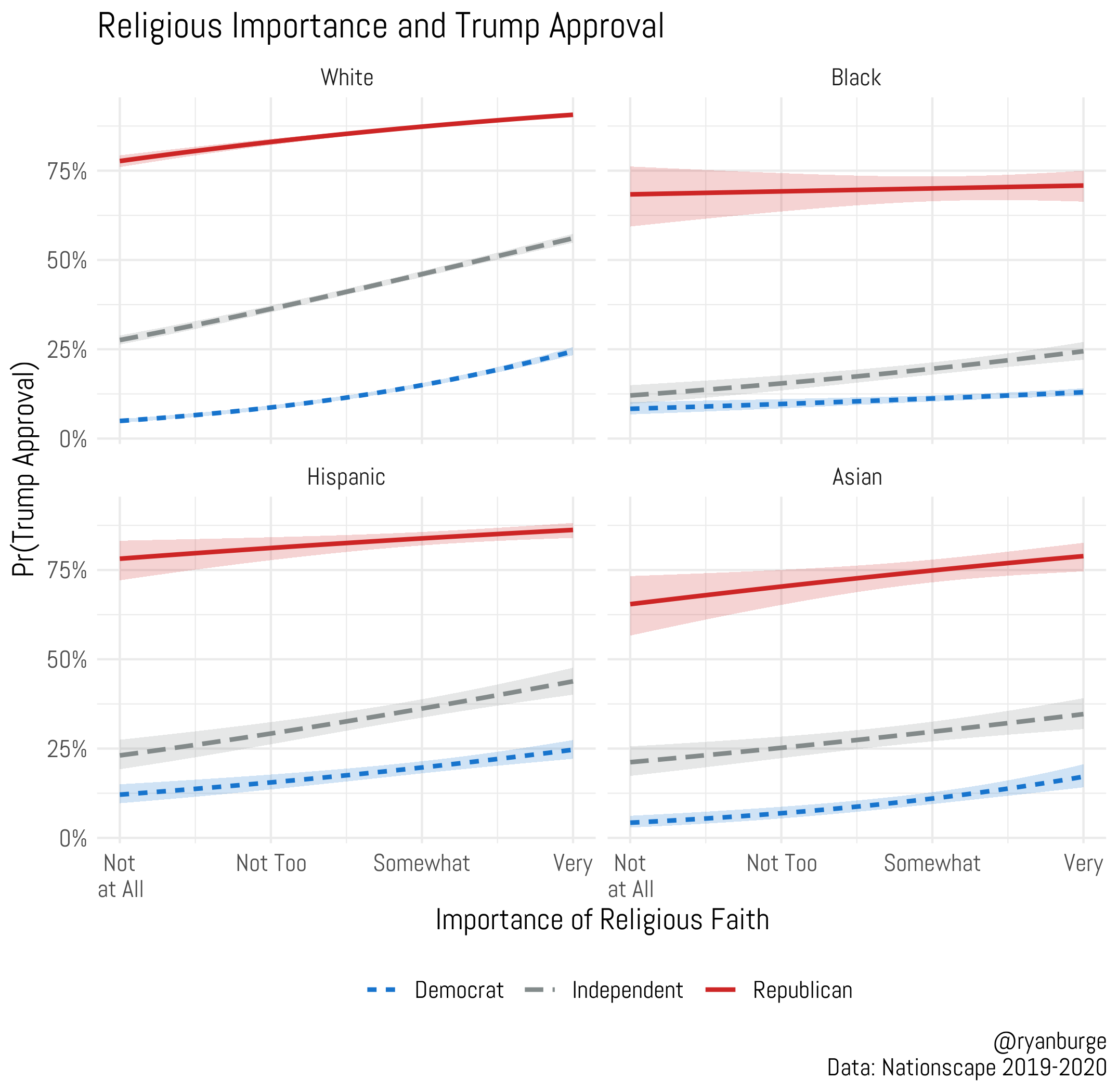Are Democrats Influenced by Religion as Much as Republicans?
(ANALYSIS) I frequently tell my students that the great part about being a social scientist is that I get to study human behavior, but that’s also the most difficult part as well. Human beings are never as simple as we would like them to be. We are all a jumble of contradictions and disparate beliefs that never seem to unify into a cohesive whole. It’s somehow my job to make sense of that amorphous blog of inconsistency.
What makes generating overarching theory difficult is that people are often pulled in multiple directions by the different identities that they take on throughout their lives. For instance, an outdoorsman who considers himself as a protector of the environment but also strongly supports gun rights doesn’t fit neatly on the political spectrum. Or the union member who is staunchly pro-life may have a hard time at the ballot box. There’s a technical term for these kinds of individuals: cross-pressured. I think we can all agree that almost all of us are cross pressured in a number of ways both seen and unseen.
But where does religion fit into this puzzle? Is it a force in American life that pushes people to be more politically conservative or liberal? Do certain types of political partisans place a great emphasis on their spiritual life? Or do other competing identities seem to shape people more like their race, ethnicity or national origin? The Democracy Fund made public a huge dataset of over 300,000 respondents and they asked them how important a number of identities were to them. When those are broken down by party affiliation, the results are fascinating.
It’s important to note that for all the talk of political hobbyism and the sheer magnitude of political discourse on social media, very few respondents (just a quarter of Democrats and Republicans) thought their party identification was very important to them. On the other hand, huge swaths of Americans believed that their close family was of the greatest importance. Religion falls somewhere in the middle of the range with 40% of Democrats and 55% of Republicans responding that it was “very important” to them.
To get a sense of just how the importance of those identities shift as one moves from the left side of the political spectrum to the right, I calculated the rank order of each of the six identities for each group of respondents on the political spectrum ranging from strong Democrats to strong Republicans.
The general pattern is one of fairly small movements. In fact, for five of the six identities the ranking never moved more than one position up or down from strong Democrats to strong Republicans. For instance, being an American was the second most important for all Democrats, but only bumped up to the first position for those who classified themselves as strong Republicans.
However, the outlier here is religion. For strong Democrats, it ranked as the least important (sixth out of six). But, as one follows the yellow line from left to right it begins to rise - becoming more important. For independents, it was in the fifth position, but then jumped up to fourth among weak Republicans. Finally, it ends as the third most important for strong Republicans just behind being an American and close family.
It’s clear from these results that religion is deeply intertwined with political partisanship. But, how could that manifest itself when it comes to the 2020 presidential election? To assess that I specified a simple regression analysis where the sample was broken down into the three political parties as well as four racial groups. The goal was to test a simple question: does an increase in religious importance lead to higher levels of support for President Trump? Or can religious importance actually drive some away from supporting the president?
The clear consensus is this: the higher the level of religious importance, the more likely a respondent was to give President Trump a positive approval rating. That result holds for Republicans as well as Democrats. For instance, a white Democrat who said that religion was not at all important placed Trump’s support around 5%, but for those who said it was very important, predicted support jumped to 25%. For Hispanic Democrats, the increase was from 12% to 25%, as well.
In fact, President Trump’s job approval was always higher for those who said that religion was very important than those who said it was not important at all. This was true even among non-white Democrats and Independents. Clearly, Trump’s approval turns (at least in part) on religious concerns.
One thing that shines forth clearly is this: American religion of all varieties, regardless of race and partisanship, is tied to the support of our current president. It’s just another example in a litany of many about the importance of the God Gap in American politics. Most Americans now see the concepts of religious devotion and Republican affiliation as being clearly linked. In essence, Americans believe jettisoning religion is to embrace the Democratic party. But on the other hand, to be a person of faith is to be more supportive of the GOP, even when their standard bearer is a man of a dubious faith and questionable personal morality.
Ryan Burge is an assistant professor of political science at Eastern Illinois University, a pastor in the American Baptist Church and the co-founder and frequent contributor to Religion in Public, a forum for scholars of religion and politics to make their work accessible to a more general audience. His research focuses on the intersection of religiosity and political behavior, especially in the U.S. Follow him on Twitter at @ryanburge.



